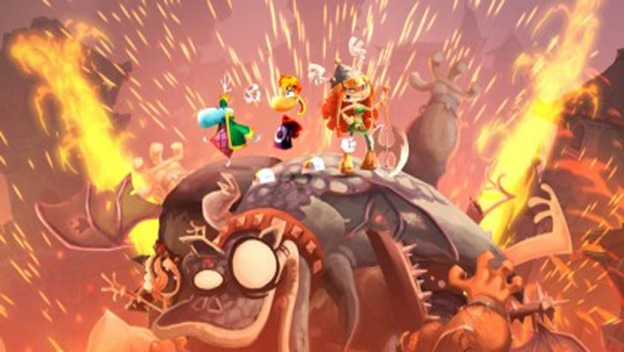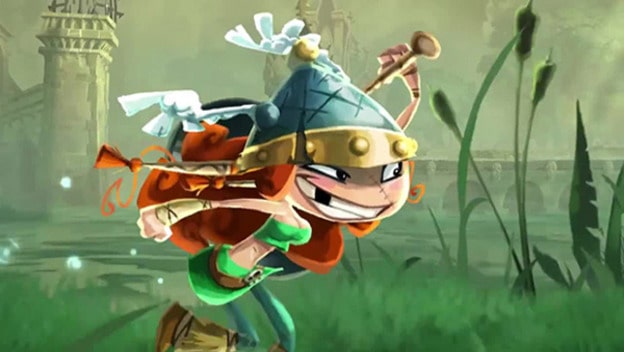With the Wii U seeing low sales so far this year, Ubisoft’s decision to make Rayman Legends a multiplatform title instead of a Wii U exclusive makes financial sense. What set a lot of gamers off, of course, was the company’s decision to delay the Wii U version of the game from its previous February release date to September, when the PlayStation 3 and Xbox 360 versions of the game will come out.
Game delays certainly aren’t uncommon in this industry, but a seven-month delay of a finished game mere weeks before its launch date isn’t the norm, nor is it considered acceptable by consumers. It’s a particularly bad public relations move in an industry that lives on preorders. Ubisoft faced a massive backlash from Wii U customers, and there’s sure to be a second wave of anger when customers who haven’t yet heard the news attempt to pick up their pre-orders in stores.
In the face of customer discontent, Ubisoft Corporate offered nothing but a second demo of the game to Wii U owners, many of whom understandably considered the gesture condescending and insufficient. In the meantime, though, what was happening at Ubisoft Montpellier, the development studio that actually made the game?
It appears that the Rayman Legends developers were just as much in the dark about the game’s delay as consumers were. One (anonymous but likely genuine) developer complained on a Spanish forum that the team had been crunching for months, working long hours that turned out to be unnecessary in order to complete the game before its originally scheduled launch date. Surely Ubisoft Corporate didn’t make this multiplatform release decision out of the blue one morning, and allowing one’s employees to slave away under a nonexistent deadline is a terrible way to treat them.
Worse, the Rayman Legends developers had to watch as fans who were excited about their creation turned on both Ubisoft and the game itself, canceling preorders and loudly stating that they will never buy the game even when it comes out in September. Some fans understood the developers’ situation, and a few even showed up outside the Montpellier office with protest signs that begged Ubisoft to support its Monpellier studio and release the Wii U version of the game. Still, the game’s developers were left holding the bag, attempting to placate a public angry over a decision they didn’t make.
Earlier this month, the development team did what it could for upset fans, announcing that rather than release another demo, they would be making the game’s challenge mode available for free on the Wii U during the wait for the final release. This involves releasing regular challenges to the public, meaning more work for a team that until recently thought it had completed this game and could move on to other projects.
The whole situation leaves fans in the position of wondering how best to protest Ubisoft’s unpopular decision to delay Rayman Legends on the Wii U. Refusing to buy the game entirely is more likely to hurt the development team at Montpellier than Ubisoft as a whole. Not to mention the fact that if the game sells poorly on the Wii U, it will likely be seen by third-party publishers as an example of why they shouldn’t release Wii U exclusives or ports. That’s hardly the kind of result Wii U owners would wish for. Unfortunately, complaining to the publisher isn’t likely to be terribly effective, as the game is likely to make more money overall as a multiplatform title even if Wii U owners boycott it in droves.

The only real power we have as consumers is that of our wallets, but the binary decision to purchase or not purchase a product seems insufficient in a situation like this. Our purchasing decisions affect game development teams before they affect publishers, as those teams are the first to go when a game doesn’t make enough profit for a publisher. It’s particularly difficult for fans of niche genres like 2D platformers, who worry that the decision not to purchase a specific game translates to publishers as lack of support for that genre rather than dissatisfaction with a publisher’s decisions or policies.
What’s the best thing for a disgruntled customer to do in the face of unpopular publisher decisions like this one or other common examples such as using restrictive DRM or marketing a game in a highly offensive manner? It seems like there isn’t one good answer for game consumers, especially when it comes to supporting the people who actually create the games we love.
In the rumble over Rayman, it looks like nobody wins but the publishing executives who don’t seem to care who they step on in their desire to maximize profits.
 | By Becky Cunningham Lead Contributor Date: February 25, 2013 |
